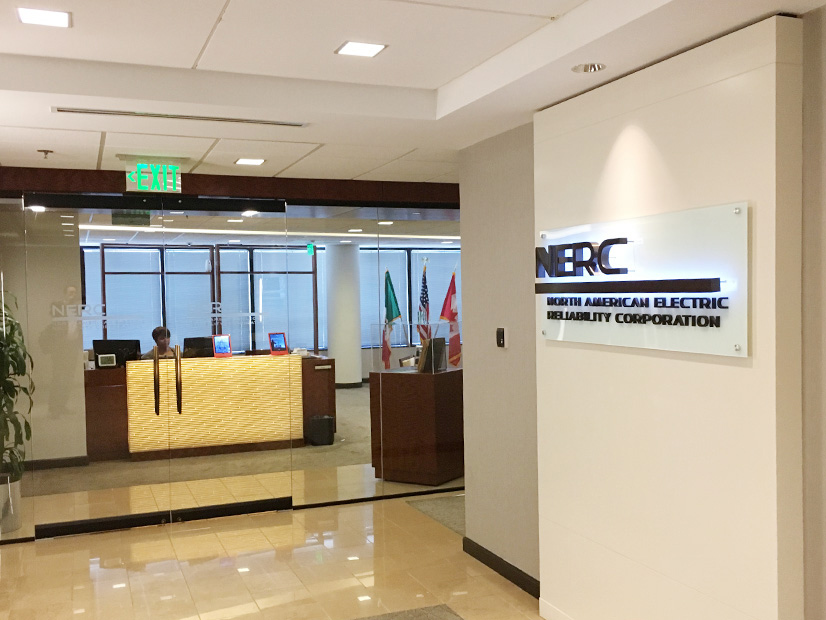Participants in NERC’s Member Representatives Committee suggested improvements to the onboarding process for new entrants and greater engagement with industry organizations in their responses to Board Chair Ken DeFontes’ call for stakeholder input, published Feb. 6.
DeFontes asked for the MRC’s input last month ahead of the Board of Trustees and MRC meetings to be held next week. In addition to seeking feedback on the board’s planned agenda items, the chair requested responses to three specific questions:
-
- How can NERC facilitate engagement by new industry participants?
- How can NERC encourage incumbent players to continue engaging in the ERO stakeholder process and ensure their contributions are effective?
- How can NERC promote improved alignment between subject matter experts, trade associations, industry leadership, the MRC and NERC?
Multiple respondents brought up issues with NERC’s onboarding process. Electricity Canada, a trade group representing Canadian electric utilities, cited the ERO Enterprise’s “complexity” as “a barrier to onboarding new entrants,” despite acknowledging NERC’s efforts to provide documentation for its resources. The group suggested the ERO create a dedicated section on its website for bringing newcomers up to speed, in addition to offering “introductory courses on NERC fundamentals” that can be tailored to more specific topics.
The Edison Electric Institute echoed Electricity Canada’s thoughts but advised that any introductory courses should include in-person learning sessions rather than being limited to prerecorded webinars and slide decks. EEI explained that webinars “lack dialogue and opportunities for interaction,” and new participants would benefit from discussions with their more experienced colleagues.
A group of federal utilities and power marketing administrations said NERC should “learn more about the new entrants,” including their corporate goals and the regulatory structures under which they operate. The ISO/RTO Council (IRC) added that NERC’s onboarding materials should address each responsible entity’s “role and responsibilities within the broader NERC community.”
Regarding the ERO’s engagement with existing participants, several entities raised concerns about the volume of projects underway at NERC. A collective letter from members of the cooperative sector noted that “there continues to be significant requests for industry comments on reliability standards, guidelines, and data requests.”
The cooperative members said the high level of activity can “become burdensome” for industry and warned that projects may be “pushed through the approval process to satisfy a FERC rulemaking.” They asked for “more robust” communications from NERC to help industry grasp the benefits and impacts of proposed standards, with outreach tailored to specific sectors.
Representatives of the merchant electricity generator sector said NERC’s practice of allowing entities to register in multiple segments, and therefore cast multiple votes, gives too much power to members that can qualify in multiple segments. For example, the writers observed that segment 5 — electric generators — “allows participation by merchant generators; renewable resources; municipalities, cooperatives and vertically integrated utilities that hold generation.”
“There was a recent vote where the merchant generators and renewable developers overwhelmingly opposed a proposed standard, yet a majority of the segment representatives voted for the standard,” the merchants said. “Presumably these multisegment entities coordinated voting across segments.” The writers suggested that this potential power imbalance might discourage entities from participating.
Reliability, Transparency
Members urged NERC to focus on its leading role in the community of electric reliability, with members from the electricity marketer sector suggesting the ERO improve industry alignment by prioritizing “targeted areas with the greatest impact for improving reliability.”
The IRC pointed out that the power grid’s generation mix is changing rapidly, and not all new resources will be subject to NERC’s reliability standards. Their response suggested that NERC “engage with applicable regulatory entities” to promote awareness of these resources’ potential reliability impacts.
Representatives of the North American Generator Forum repeated these calls for communication, recommending that NERC reach out to trade associations and other industry participants frequently and “facilitate calls and/or virtual meetings” to promote the exchange of information. EEI also emphasized the importance of transparency, noting that “the ability to develop robust solutions in a timely manner is impaired when industry and NERC do not have the same understanding of the underlying problem.”
“It is critical that the problem statement for risks that need to be addressed through standards projects or other activities is clear and well understood by the industry,” EEI said. “Investing more time up front explaining and soliciting broad stakeholder feedback on an issue, and subsequently on the proposed solution, should result in better alignment, less rework and a more efficient process.”




